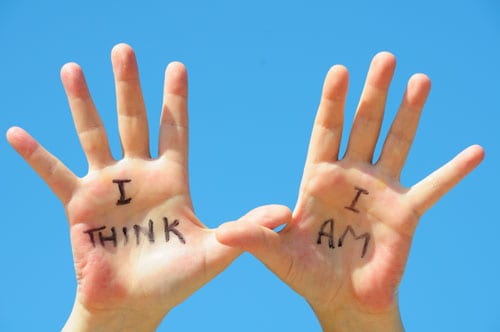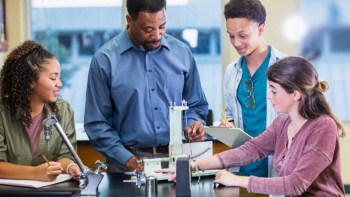
By James Dacey in Córdoba, Argentina
What’s the best way to teach tricky physics concepts to students? Naturally, this was one of the questions underpinning many of the talks here at the International Conference of Physics Education (IPCE) in Córdoba. According to a couple of educationalists in Latin America at least, it seems that one approach is to enlist the help of some of the great scientists and philosophers of the past.
Patricia del V. Repossi, a lecturer at the Pontificia Universidad Católica Argentina in Buenos Aires, spoke about how she uses the history of science as a framework for teaching optics. Repossi explained how she had come to realize that some of the students taking her conventional optics course believed that photons are made of the same stuff as “tennis balls”. So, she and her colleagues set about transforming the way they teach the topic – by combining a physics class with a history lesson.
The course begins with the work of the French researcher and philosopher René Descartes and then takes the students on a journey through the development of the corpuscular theory of light. It takes in the work and the relationships between the likes of Descartes’ fellow countryman Pierre Gassendi, Robert Hooke and Isaac Newton.
The crucial feature is that the students do not only learn about the work of these great thinkers, but they are guided into thinking along the same lines as these historical giants. This approach, Repossi says, is a great way for students to get a far more tangible appreciation of the nature of light.
Another Latin American educationalist who is keen on learning from the past is Roberto Nardi. He gave a fascinating talk about how he and his colleagues at São Paulo State University in Brazil have developed a 40-hour course on the history and philosophy of science for teachers in the local region. Having delivered the course to many teachers, they have since followed the development of five of these educators, to see whether it had changed the way they are teaching. They also studied a teacher trainer, who had taken their history course three years earlier, to see if she is sharing the information with the next generation of teachers.
Their conclusion? There has been some trickle down into the education system. But as is the case the world over, the teachers in Brazil are limited by the fact that they have to cram so much other information into the curriculum. A worthwhile project, they say, but room for improvement.



